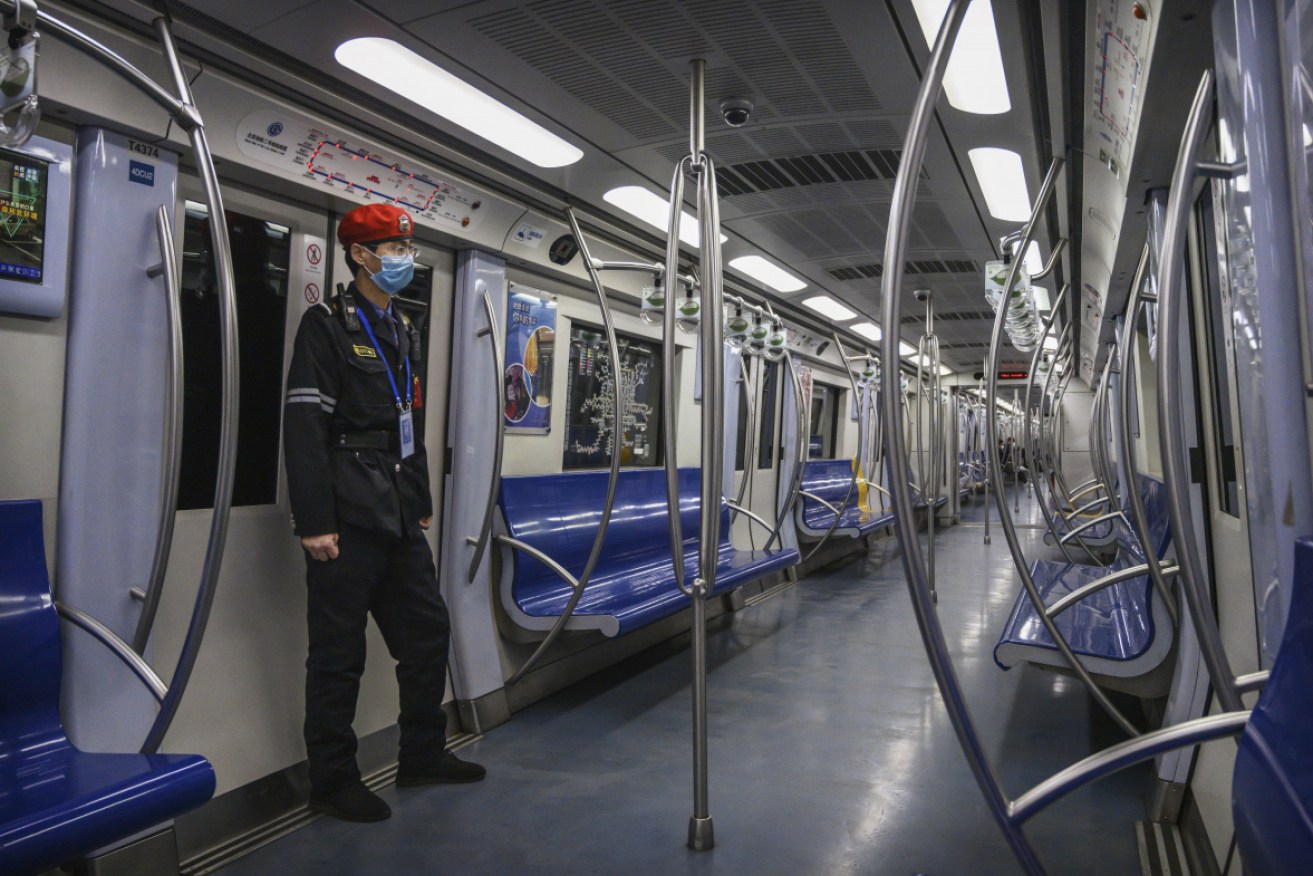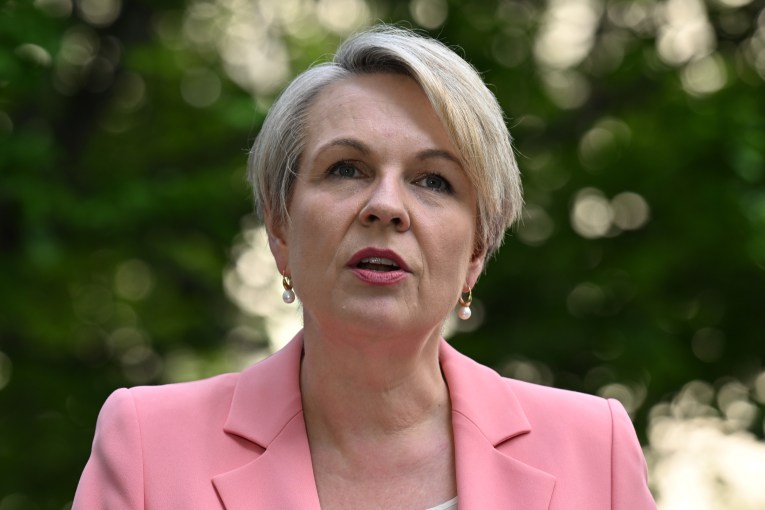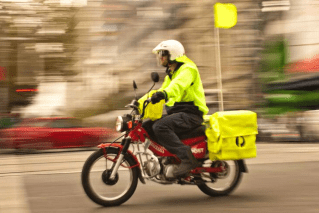Call for easing of travel ban as coronavirus takes its toll


In Beijing, subways remain largely deserted with many shops and restaurants empty or shut. Photo: Getty
As Australia’s tourism sector deals with the “savage blow” dealt by the new coronavirus, a leading business group has called for a partial lifting of the travel ban that prevents tourists and students from mainland China entering Australia.
The federal government extended the two-week ban for another seven days this week on official medical advice.
Treasurer Josh Frydenberg concedes these travel restrictions are having a significant impact on the economy given that 200,000 students from China come to Australia, while 1.4 million Chinese tourists arrived last year.
While Australian Chamber of Commerce and Industry acknowledges keeping Australians safe from the virus is “absolutely paramount” he says it is a “savage blow” to Australian tourism.
“The ban on passenger air travel also impacts on a range of other industries that depend on frequent air movements to shift goods, including perishable products,” Australian Chamber – Tourism Executive chair John Hart said in a statement.
“Tourism and trade would greatly benefit from even a partial lifting of the ban from provinces in China that present a much lower risk to Australians.”
The call for a partial lift on the ban comes as China orders people returning to Beijing from extended holidays to undergo a 14-day self-quarantine to help prevent spread battles to contain the spread of the virus which has claimed over 1,500 lives.
The official Beijing Daily newspaper advised people failing to obey would be punished. It was not immediately clear how that would be enforced, or whether the restrictions would apply to non-residents of Beijing or foreigners arriving from abroad.
“From now on, all those who have returned to Beijing should stay at home or submit to group observation for 14 days after arriving,” read the notice from Beijing’s virus prevention working group cited by the Beijing Daily.
“Those who refuse to accept home or centralised observation and other prevention and control measures will be held accountable under law,” it said.
Stricter containment measures were planned elsewhere as well. Honghu city in Hubei province imposed a “wartime” lock-down beginning on Friday, with strict management of entry into housing compounds and villages, according to an official social media account of the local police, China’s CCTV reported.
Hubei officials said there were 2,420 new cases on Friday (local time) and 139 more deaths.
A top Chinese official, in an interview with Reuters, acknowledged that coronavirus was a huge challenge, but defended Beijing’s management of the epidemic and lashed out at the “overreaction” of some countries.
State Councillor Wang Yi, who also serves as China’s foreign minister, said China has taken decisive measures to fight the epidemic, many going beyond international health regulations and World Health Organisation (WHO) recommendations.
“Through our efforts the epidemic is overall under control,” he said.
China is struggling to get the world’s second largest economy going after the annual Lunar New Year holiday, which was extended by 10 days to help contain the highly contagious virus.
Including the latest numbers from Hubei at the epicentre of the outbreak, the total number of cases in mainland China now exceeds 66,000, with more than 1,500 deaths.
On Friday night (local time) The World Health Organisation announced Africa’s first case, after official confirmation from Egypt’s ministry of health.
The figures show no sign that the outbreak is nearing a peak, said Adam Kamradt-Scott, an infectious diseases expert at the Centre for International Security Studies at the University of Sydney.
Tweet from @WHOEMRO
With 500 million people already affected by movement and travel restrictions, President Xi Jinping warned top officials last week that efforts to contain the virus had gone too far and were threatening the economy, sources said.
In Beijing and the business hub Shanghai, streets and subways remain largely deserted with many shops and restaurants empty or shut.
Government employee Jin Yang, 28, made it to his Beijing office and found it “anything but normal.”
Canteen lunches are banned in favour of boxed meals eaten at desks. Meetings are held online, not in person. Employees must wear masks all day and report their temperature twice a day as fever is one of the virus’ main symptoms.
Outside mainland China, there have been nearly 450 cases in some 24 countries and territories, and three deaths. Japan confirmed its first coronavirus death on Thursday. One person has died in Hong Kong and one in the Philippines.
Economists polled by Reuters said China’s economic downturn would be short-lived if the outbreak was contained, but expected this quarter would show China’s slowest growth rate since the global financial crisis.
The Chinese car makers’ association said auto sales in China were likely to slide more than 10 per cent in the first half of the year because of the epidemic.
Vietnam has imposed a 20-day quarantine on Son Loi, a rural community outside Hanoi where 11 of the country’s 16 coronavirus cases are located, two local officials said.
The virus is taking its toll on the $US46 billion ($A68 billion) global ocean cruise industry.
The biggest cluster of infections outside China has been on a cruise liner quarantined in a Japanese port, with 218 people on board infected and taken to hospital.
On Friday, some passengers were allowed to disembark to complete their quarantine on shore.
-with agencies








